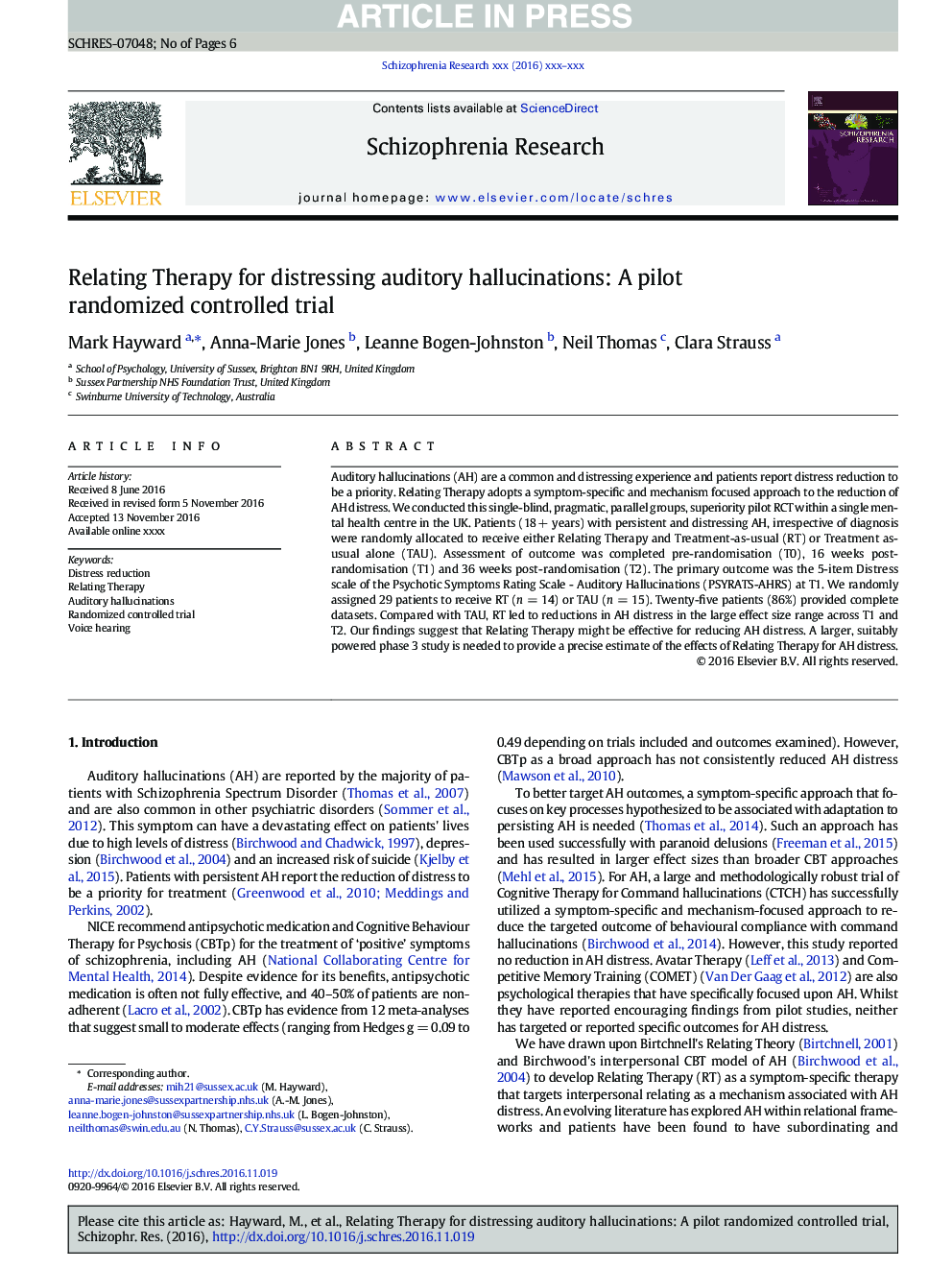| Article ID | Journal | Published Year | Pages | File Type |
|---|---|---|---|---|
| 4935068 | Schizophrenia Research | 2017 | 6 Pages |
Abstract
Auditory hallucinations (AH) are a common and distressing experience and patients report distress reduction to be a priority. Relating Therapy adopts a symptom-specific and mechanism focused approach to the reduction of AH distress. We conducted this single-blind, pragmatic, parallel groups, superiority pilot RCT within a single mental health centre in the UK. Patients (18 + years) with persistent and distressing AH, irrespective of diagnosis were randomly allocated to receive either Relating Therapy and Treatment-as-usual (RT) or Treatment as-usual alone (TAU). Assessment of outcome was completed pre-randomisation (T0), 16 weeks post-randomisation (T1) and 36 weeks post-randomisation (T2). The primary outcome was the 5-item Distress scale of the Psychotic Symptoms Rating Scale - Auditory Hallucinations (PSYRATS-AHRS) at T1. We randomly assigned 29 patients to receive RT (n = 14) or TAU (n = 15). Twenty-five patients (86%) provided complete datasets. Compared with TAU, RT led to reductions in AH distress in the large effect size range across T1 and T2. Our findings suggest that Relating Therapy might be effective for reducing AH distress. A larger, suitably powered phase 3 study is needed to provide a precise estimate of the effects of Relating Therapy for AH distress.
Related Topics
Life Sciences
Neuroscience
Behavioral Neuroscience
Authors
Mark Hayward, Anna-Marie Jones, Leanne Bogen-Johnston, Neil Thomas, Clara Strauss,
